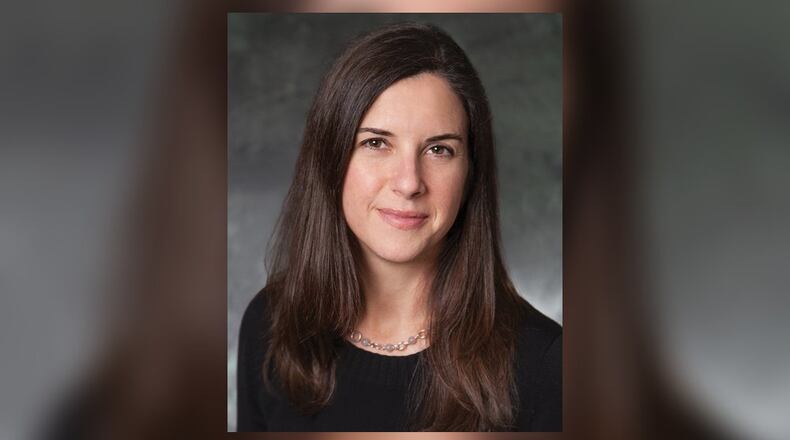It’s not a unique idea: leasing a home as a stepping stone to buying it.
What seems new to metro Atlanta is the approach taken – and the customers targeted – by a San Francisco-based company with big ambitions in a massive market and deep pockets from venture capital backers.
For starters, the renter builds equity every month.
"We take someone who is three years away from having a mortgage and we can ramp them up," said Brian Ma, founder and chief executive of Divvy Homes.
The business model is aimed at a particular kind of person – someone who has a decent and dependable income, wants to own a home but is not likely to qualify for a mortgage. Yet.
“Maybe their credit score is marginal,” Ma said. “Maybe they are new to their job, or they just started making this income.”
Often lenders require several years of steady income or a job history long enough to prove stability – evidence that a younger worker might lack. But a few years from now, this person might qualify and buy a home.
So, in the meantime, Ma said, why not live in the home that you’d like to buy?
Divvy is a kind of bridge for those borrowers, he said. "What you do is point out the house you want and we buy it for you."
Then, the would-be buyer moves in and pays Divvy a monthly rent.
Only it’s not the traditional idea of rent – it’s higher, but the buyer “gets” more than just a month’s occupancy.
“Credits” toward equity – an eventual purchase – account for about 25 percent of the payment. About 5 percent of the payment would go to maintenance of the house.
The rest – roughly 70 percent of the payment – is rent, Ma said.
How much that adds up to depends on the house and the area. But Ma estimated that a $200,000 home in Conyers that would typically rent for about $2,100 a month would – with a Divvy deal – be about $2,450. That includes $450 that would eventually go to the down-payment.
Like any renter, if you stop paying, you’ll be evicted. But if you end up not buying, you “cash out” with a payment of the equity you have accumulated.
“But hopefully everything works out and we hand over the title,” Ma said.
In that case, Divvy provides the 10 percent down-payment, mostly from money you have already paid.
Divvy has just about no presence in Atlanta, Ma said. “Instead, we partner with the real estate brokers on the ground. We don’t know the area.”
Still, for some people – who don’t have a lot of savings yet — the idea might make sense, said economist Lynn Fisher of the Mortgage Bankers Association. “Down-payments are always a major impediment to anyone becoming a homeowner.”
The national home ownership rate, which peaked at nearly 70 percent during the housing boom, has fallen dramatically since, according to the Federal Reserve Bank of St. Louis. While it has edged up since mid-2016, the rate is still far below its highs.
The difference in home ownership rates among people between the age of 25 and 39 represents a big chunk of missing demand, Fisher said.
Compared to two decades earlier, the drop in ownership rates for that cohort means about 1,011,600 fewer people who own homes now, she calculated.
Some of the difference is taste – many millennials prefer the flexibility of renting. But many have been slow to establish the kind of financial track record that lenders look for when providing a mortgage.
They are still building their credentials.
The most common reason for being rejected on a mortgage application is a low credit score, according to a study by the National Association of Realtors, said Adam DeSanctis, a spokesman on economic issues.
Also high on the list: the inability to put together a down-payment, he said.
Divvy sees itself as a kind of bridge for those people, Ma said. “Legally we are landlords. We make money on the rent, but as a business, we think of ourselves as partners with the buyer.”
In some circles, lease-to-purchase has an unsavory reputation.
As The Atlanta Journal-Constitution has reported, some well-funded companies have aimed such deals at people who are unlikely to ever finish a purchase. Harbour Portfolio Advisors of Dallas, for example, has been charged with targeting less-educated, credit-impaired minorities.
And while Divvy has a different business plan – seemingly aimed at more affluent clients – Bruce Ailion, an Alpharetta-based Re/Max agent and long-time property owner, said the idea just rubs him wrong.
“There are so many ways to get to buy a house,” he said. “Take time to improve your credit, take a second job, ask your employer for a loan, hit up a relative.”
Many people who are lured into the arrangement will end up bailing out, Ailion said. “That is what the investor is counting on.”
For renters who've been watching home prices rise fearing they will never be able to buy a home, the Divvy approach offers a way to get into the market now.
“There’s a fear of losing out,” said economist Fisher of the bankers’ group. “People would like help with saving money and improving their credit scores.”
The irony is, that any approach that brings more buyers into the market will probably make prices rise even faster, Fisher said.
MYAJC.COM: REAL JOURNALISM. REAL LOCAL IMPACT.
AJC Business reporter Michael E. Kanell keeps you updated on the latest news about jobs, housing and consumer issues in metro Atlanta and beyond. You'll find more on myAJC.com, including these stories:
Never miss a minute of what's happening in local business news. Subscribe to myAJC.com.
About the Author
Keep Reading
The Latest
Featured




